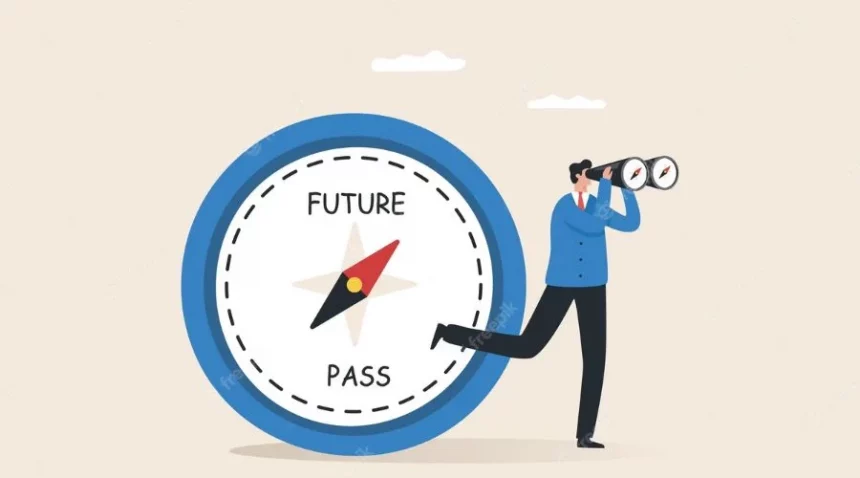Have you ever felt like you’re just going through the motions in life without any real direction or purpose? Perhaps you’ve found yourself feeling unfulfilled in your current job or struggling to find a career that truly resonates with you. Whatever the case may be, the key to unlocking your full potential lies in identifying your unique interests and strengths. By understanding what drives you and what you excel at, you can set yourself on a path towards success and fulfillment.
In this article, we’ll explore the process of discovering your true potential and how to harness it to achieve your goals. We’ll cover everything from self-reflection exercises to identifying your core values, and provide actionable tips to help you leverage your strengths in both your personal and professional life. So, if you’re ready to unlock your full potential and take control of your future, read on to discover the secrets to identifying your unique interests and strengths.
Why Identifying Your Interests and Strengths Is Important
Before we dive into the process of discovering your true potential, it’s important to understand why identifying your interests and strengths is so crucial. For starters, understanding your unique interests can help you identify potential career paths and hobbies that align with your passions. When you’re doing something you love, it doesn’t feel like work, and you’re more likely to excel and feel fulfilled.
Similarly, understanding your strengths allows you to identify areas where you excel and can bring value to the table. By leveraging your strengths, you can set yourself apart from the competition and achieve success in your personal and professional life. Additionally, by focusing on your strengths, you can build up your confidence and self-esteem, which can have a positive impact on all aspects of your life.
Self-Reflection Exercises for Identifying Interests and Strengths
Now that we understand the importance of identifying our unique interests and strengths, let’s dive into some self-reflection exercises that can help us uncover these traits. First and foremost, it’s important to take some time to reflect on your life experiences and what you’ve enjoyed doing in the past. Ask yourself questions like:
- What activities do I enjoy doing in my free time?
- What hobbies have I pursued in the past?
- What are some of my proudest accomplishments?
- What tasks or activities come naturally to me?
By reflecting on these questions, you can start to identify potential interests and strengths that you may not have even realized you had. Additionally, it can be helpful to take personality tests or career assessments, which can provide insight into your unique traits and preferences.
Identifying Transferable Skills
In addition to reflecting on your interests and strengths, it’s important to identify your transferable skills. Transferable skills are skills that can be applied to a variety of different roles or industries, and are often highly valued by employers. Some examples of transferable skills include:
- Communication skills
- Leadership skills
- Problem-solving skills
- Time management skills
- Analytical skills
By identifying your transferable skills, you can start to explore potential career paths that align with your interests and strengths, even if they’re not directly related to your current role.
Finding Inspiration from Others
Sometimes, the best way to identify our own interests and strengths is to look to others for inspiration. Take some time to think about people you admire or look up to, whether they’re friends, family members, or public figures. Ask yourself:
- What traits or qualities do I admire in these people?
- What accomplishments of theirs do I find inspiring?
- What can I learn from their experiences or achievements?
By looking to others for inspiration, you may uncover interests or strengths that you hadn’t considered before. Additionally, seeking out mentorship or guidance from those who have achieved success in areas that interest you can be incredibly valuable.
Seeking Feedback from Trusted Sources
Another way to gain insight into your interests and strengths is to seek feedback from those who know you best. This could be friends, family members, or colleagues who can provide an outside perspective on your qualities and abilities. Ask them questions like:
- What do you think are my greatest strengths?
- What qualities or traits do you think I possess that could be valuable in a career?
- What have you noticed about my interests or passions?
By seeking feedback from others, you may uncover strengths or interests that you hadn’t considered before, or gain validation for things you’ve already identified.
Narrowing Down Your Interests and Strengths
Now that you’ve done some self-reflection and gained insight from others, it’s time to start narrowing down your interests and strengths. Make a list of everything you’ve identified so far, and start to categorize them by theme or similarity. For example, you may notice that many of your interests involve working with animals, or that your strengths all relate to problem-solving.
Once you’ve identified some common themes, start to prioritize them based on what’s most important to you. This could involve asking yourself questions like:
- Which of these interests is most fulfilling to me?
- Which of these strengths am I most confident in?
- Which of these themes aligns best with my core values?
By narrowing down your interests and strengths, you can start to focus on what’s most important to you and set goals accordingly.
Setting Goals Based on Your Interests and Strengths
Now that you’ve identified your unique interests and strengths, it’s time to start setting goals based on them. Consider what you want to achieve in both your personal and professional life, and how your interests and strengths can help you get there. This could involve setting career goals that align with your passions, or pursuing hobbies that allow you to utilize your strengths.
When setting goals, it’s important to make them specific, measurable, achievable, relevant, and time-bound (SMART). This means that your goals should be:
- Specific: Clearly defined and focused
- Measurable: Able to be tracked and quantified
- Achievable: Realistic and attainable
- Relevant: Aligned with your interests and strengths
- Time-bound: Have a specific timeline for completion
By setting SMART goals that align with your interests and strengths, you can ensure that you’re taking actionable steps towards your desired future.
Overcoming Obstacles and Challenges
Of course, identifying your interests and strengths and setting goals based on them is only the first step towards unlocking your true potential. Along the way, you’re likely to encounter obstacles and challenges that may hinder your progress. Whether it’s a lack of confidence, a fear of failure, or external factors like a difficult job market, it’s important to have strategies in place for overcoming these obstacles.
Some tips for overcoming obstacles and challenges include:
- Staying focused on your end goal
- Breaking your goals down into smaller, achievable steps
- Seeking out support from friends, family, or mentors
- Reframing negative thoughts into positive ones
- Being open to feedback and constructive criticism
By staying resilient and persevering through obstacles, you can overcome challenges and achieve success in your personal and professional life.
Conclusion and Next Steps
In conclusion, identifying your unique interests and strengths is crucial for unlocking your full potential and achieving success in your personal and professional life. By taking the time to reflect on your experiences, seek feedback from others, and set SMART goals based on your interests and strengths, you can set yourself on a path towards fulfillment and happiness.
Of course, this is only the beginning of the journey towards discovering your true potential. It’s important to continue to reflect on your interests and strengths, set new goals, and stay resilient in the face of challenges. By doing so, you can continue to grow and evolve as a person, and achieve the success and fulfillment you deserve. So, what are you waiting for? Start discovering your true potential today!









